- Iterate
- Meet The Team
- Why This Chicago Entrepreneur Thinks the Future of Farming is in Your Home
Why This Chicago Entrepreneur Thinks the Future of Farming is in Your Home
When the COVID-19 pandemic hit and people began spending vastly more time at home, interest in gardening, houseplants, and cooking boomed. Rise Gardens sits at the intersection of all three.
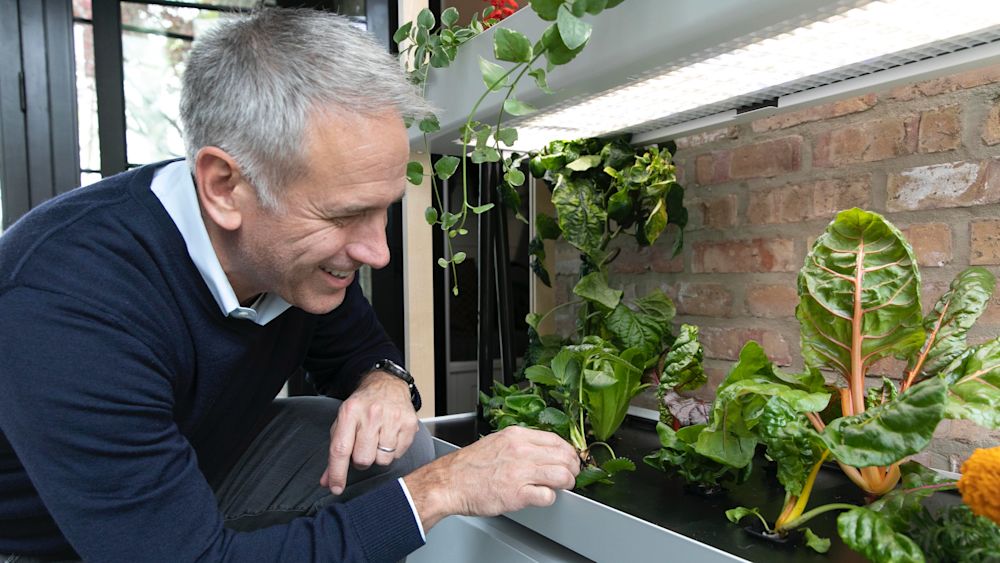
Hank Adams answered our Zoom call in front of his garden. He was indoors, light streaming in through a window on one side. Behind him was a wooden and white structure with multiple tiers of plants producing food Adams would be able to eat in a matter of days.
Adams is the founder and CEO of Rise Gardens and an enthusiastic user of his company’s products. In his multi-level , the flagship indoor gardening system from Rise Gardens, Adams can grow “vining crops, microgreens, rooted vegetables, nightshades, herbs.” He recently harvested snap peas from the self-watering, self-fertilizing garden — in Chicago, in February.
“I basically took a big commercial farm and shrunk it down to the size of a consumer system, because that’s what grows the best-tasting and the healthiest food,” Adams explained. “We’re ambitious, but people seem to be responding to it.”
Indoor agriculture was a , according to Grandview Research. In the U.S., indoor farms operate at the , and scales. In January 2020, food tech website The Spoon asked whether personal farms were “.”
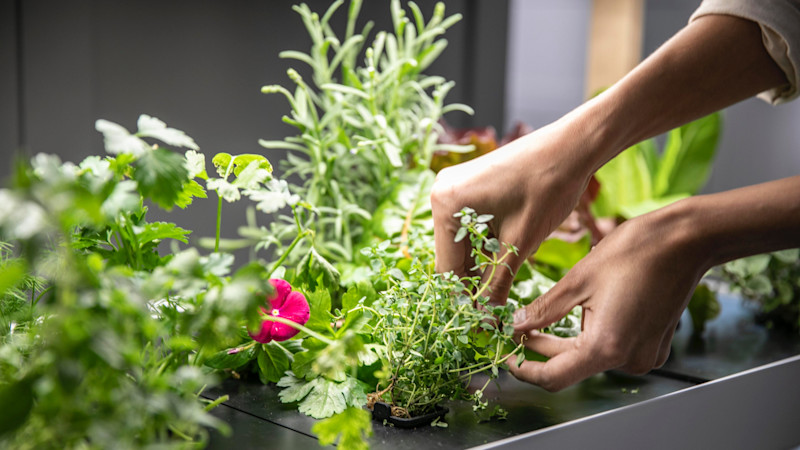
When the COVID-19 pandemic hit and people began spending vastly more time at home, interest in , , and boomed.
Rise Gardens sits at the intersection of all three.
Adams is a food enthusiast, though he didn’t start his career there. His first company, social media firm Real Fans Sports Media, was acquired by AOL in 1997. He then bought back the publishing assets to found Ignite Sports Media. In 2002, that company merged with Sportvision — which is best known for creating the digital yellow lines that TV networks use to show first downs on a football field — and Adams took the helm.
After Adams left Sportvision in 2016, he pivoted to another abiding passion: Food.
“woke me up to just how broken the food system is,” Adams said. “I really started to focus on that and wanted to do something about it. So I started looking at things I could do to help people connect with their food, and maybe reduce food miles.”
One way to reduce food miles, of course, is to grow food in an indoor hydroponic garden within a few feet of your kitchen.
Initially, Adams experimented with large-scale indoor farming. Then he began tinkering with consumer growing systems to better understand hydroponics and shifted his focus to creating a product that would allow people to grow fresh produce inside their homes.
“Being able to grow your own food, cut it, put it on your plate, has a huge impact on how nutrient-dense your food is,” Adams said. “And it’s pretty good for mental health too.”
Adams founded Rise Gardens in 2019. Its 2020 seed round of $3.2 million was and included such investors as Home Chef founder Pat Vihtelic and Fieldglass founder Jai Shekhawat. The Amazon Alexa Fund .
The personal hydroponic gardening space is still fairly small, but experienced rapid growth early in the pandemic, The New York Times . had small personal garden units on the market . Lettuce Grow, co-founded by Zooey Deschanel, launched its in-home vertical gardening system in 2019. Gardyn was one of and Farmshelf has opened a waitlist for its horizontal unit.
Rise Gardens’ flagship product is the . Users can purchase seeds from Rise Gardens or on their own, plant them, and harvest food when they’re ready to eat. The largest unit can grow up to 108 plants at a time. Many early product testers were Northwestern University students who grew plants native to their home countries that they struggled to find in the U.S.
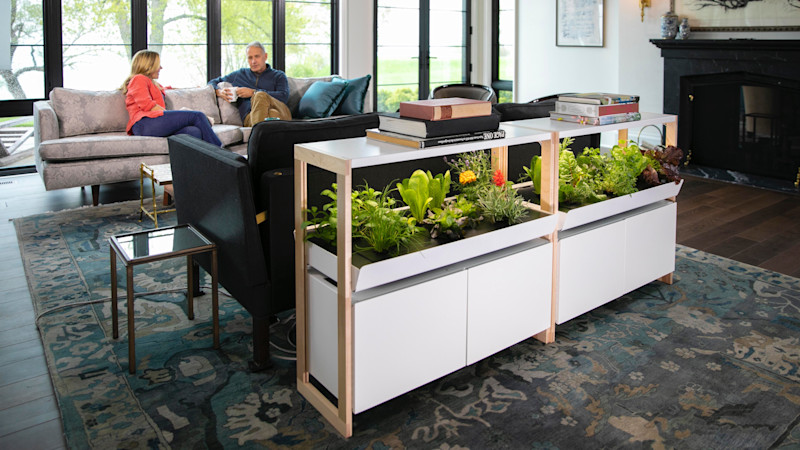
Because the product line is modular, buyers can purchase additional levels, expanding to a or family garden. Rise Gardens also offers accessories, including a for vining crops.
While designing the product line, Adams prioritized aesthetics, building units out of real wood and powder-coated metal. “It could almost double as furniture. I had one as an entry table for a while,” he said.
So far, Adams said Rise Gardens has “sold in the thousands of units, which has exceeded our expectations.” The single-tier Family Garden costs $549; the two-tier unit costs $749 and the three-tier unit costs $949. One in four customers have returned to purchase additional levels for $200 each, expanding the size of their gardens, Adams said.
Although Adams had been an entrepreneur for decades, none of his previous businesses had manufactured physical products. He leaned heavily on his Chicago network — specifically the local chapter of the — to recruit his team. A member of one of his YPO small groups manufactured the first Rise Gardens units. Networking led Adams to experts in everything from supply chains to electronics design to embedded firmware manufacturing. A longtime friend, Dan Kuhn, became CTO.
“I had to network and search and made a few mistakes along the way,” Adams said. “It’s been a combination of utilizing an existing network and utilizing groups and organizations that are well-suited to help.”
Early on, Adams said, Rise Gardens was ordering too few units to secure contracts with some manufacturers. And as a new company without an established reputation, they were often asked to pay manufacturers in full up front.
Then, when the COVID-19 pandemic hit, global manufacturing and shipping slowdowns slowed or stopped production across a wide variety of industries. At one point, Rise Gardens was out of stock for nine weeks. Even seed supply chains were disrupted.
“As they say, hardware is hard — but especially in a time like that, when supply chains are stretched,” Adams said. “Even now, ports are jammed. Shipping containers are hard to get a hold of; we’ve had to book shipping containers way in advance. It complicates an already difficult challenge.”
Forecasting demand during the pandemic has been challenging too, Adams said: “A surge in demand can happen sort of overnight, and it takes months to get these products produced all the way through the chain.”
Still, Adams said 2020 sales exceeded his expectations. The company’s latest product, the , sold out during the holiday season, but Adams says another batch is on its way.
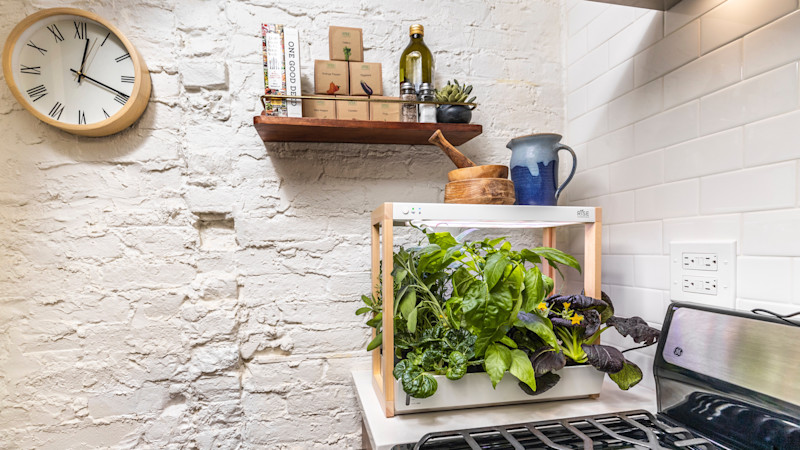
In 2021, Rise Gardens will begin offering a microgreens system offered at a lower price point than the $279 Personal Indoor Garden. “There’s so much about microgreens that’s awesome,” Adams said animatedly. “They’re hard to get at the grocery store because they don’t last. They’re super nutritious, they’re packed with all sorts of vitamins, they’re incredibly tasty — sometimes they’ve got the kick of arugula or snap pea sprouts.”
Right now, Adams is growing four different types of basil. Soon he’ll be able to harvest fresh tomatoes.
Again, this is in Chicago, in February.
“I love the fact that there’s something on the order of 20,000 edible plants in the world,” Adams said. “Grocery stores have sort of channeled us into buying things that work for them — they stack well, they grow uniformly, they transport well, they don’t bruise, they’re durable plants — but that doesn't mean that they’re the most nutritious or tasty plants out there.”
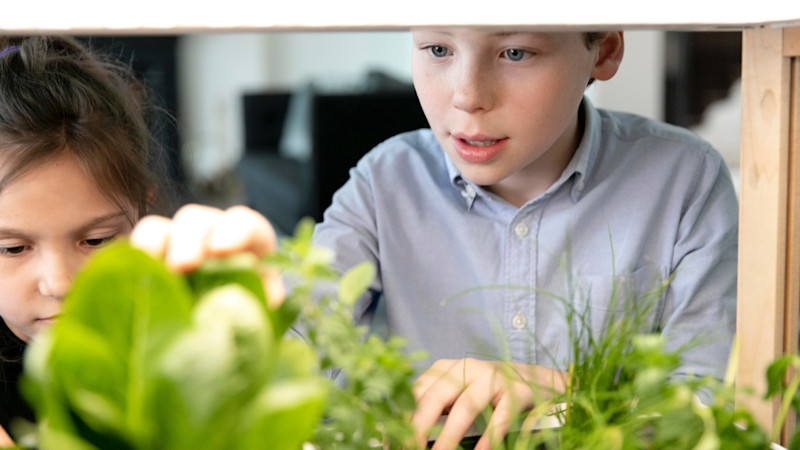
--
The Org is a professional community where transparent companies can show off their team to the world. Join your company here to add yourself to the org chart!
In this article


The ÂÜŔňÂŇÂ× helps
you hire great
candidates
Free to use – try today



